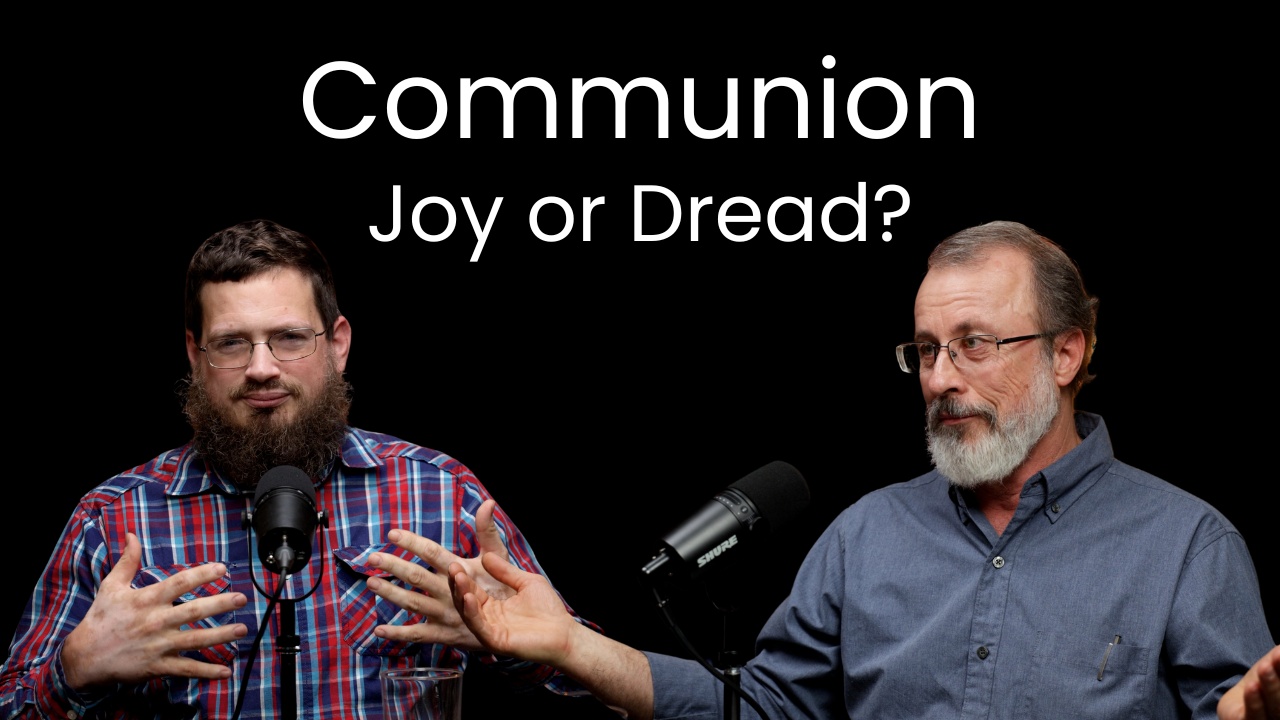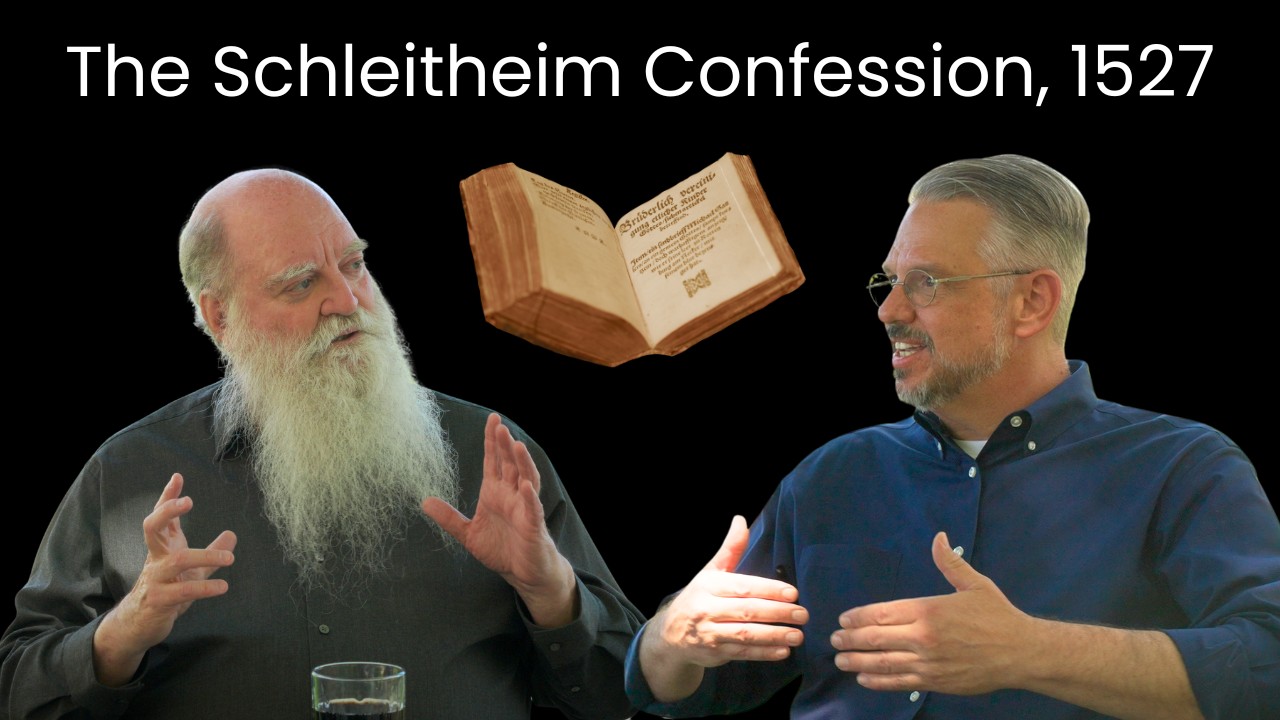Noun Doctrines and Verb Doctrines
About 15 years ago, while I was president of Rosedale Bible College, I had a conversation with brother John D. Martin, a rather inquisitive and forthright Anabaptist from Shippensburg, PA, who at the time wasn’t very familiar with the college. As I described the school’s program to him, he asked me, “What does the college stand for in spiritual terms?” I told him that we were committed to being a center for “an engaged and evangelical Anabaptist faith.”
“OK,” he asked, “what does that really mean?” “Well,” I said, “that means that we’re grounded on an evangelical understanding of the Bible as the authoritative Word of God, and a commitment to an Anabaptist approach to scripture that sees the centrality of the person and teachings of Jesus and the New Testament as the fulfillment of God’s plan for the church.”
“I don’t understand,” he persisted. “You don’t?” I replied, a bit surprised, since I knew he was a committed Anabaptist and a church leader. “That’s just theology,” he went on to say, now with a bit of a twinkle in his eye. “I don’t believe in theology… that is, unless it makes a difference in how a person lives his life for the Kingdom.”
Well, Brother John’s comments made me think. Actually, in many ways, he spoke like a true Anabaptist. As you are probably aware, the Anabaptist faith tradition has historically been one that places a premium on “faith in action.” Mennonite historian Robert Friedmann (1949) summed it up this way:
“Anabaptism was essentially a movement which insisted upon an earnest and uncompromising endeavor to live a life of true discipleship of Christ, that is to give expression in fellowship and love to the deepest Christian faith.”
Friedmann’s peer, Harold Bender (1944), a few years earlier stated something similar in an address before the American Society of Church History, observing:
“The Anabaptists could not understand a Christianity which made regeneration, holiness and love primarily a matter of intellect, of doctrinal belief, or of subjective “experience,” rather than one of the transformation of life. They demanded an outward expression of the inner experience.”
My late friend, Wayne Chesley, an Anabaptist scholar in his own right, brought this idea down to earth in terms of what he called “noun doctrines” and “verb doctrines.” “ ‘Noun doctrines’,” he said, “are beliefs that are ‘descriptive’ in nature. While they may be foundational to our understanding of who God is, or how the world was created, or how it will end, they don’t necessarily call us to action. “Verb doctrines” on the other hand, change how we live because they are ‘prescriptive;’ they spur us on to walk in the way of Christ.”
A well-rounded Christian faith, of course, consists of both “noun doctrines” and “verb doctrines.” In fact, “noun doctrines,” like belief in the existence of a holy, eternal, and omnipotent God, and the redemptive work of His only begotten Son, anchor our faith. However, much of Christianity has historically shown what Anabaptists would consider an unbalanced preference for “noun doctrines,” often at the expense of “verb doctrines.” Look at Christianity’s creeds, catechisms, and statements of faith throughout the centuries, like the Apostles’ Creed, for example, which consists almost entirely of “noun doctrines” – famously skipping from Christ’s birth to his suffering and death, as if his life and teachings were irrelevant.
Perhaps “noun doctrines” are popular because they are easier to claim, often at little personal cost. All they require is intellectual assent, or at least an affirmation of faith. In many Christian circles there seems to be an inordinate amount of energy (and strife) focused almost exclusively on parsing and defending “noun doctrines.” One wonders how the witness of the Church would be different if even a portion of the time, effort, and emotional energy that has been focused on doctrines like when the Lord is returning, or the mechanisms of atonement, or the age of the earth, or if God has pre-selected each of His followers, would instead have been given to simply putting the self-denying teachings of Jesus into practice.
When we Christians get out of balance, concentrating on the “noun doctrines” to the detriment of the “verb doctrines,” we can end up with a Christianity of the mind; a faith that can be explained intellectually, debated vigorously, perhaps even confessed, yet a faith that lacks the qualities of either salt or light. If you wonder what Jesus thinks about this type of faith, just ask the goats. The difference between the sheep and the goats in Jesus’ parable (Mathew 25) had little to do with belief, since both sheep and goat alike confessed Jesus as ‘Lord.’ No, the difference was found in how each particular species lived out the guiding principles of Jesus’ Kingdom.
While some core ‘‘noun doctrines” are certainly important in laying the often unseen foundation of our faith, the Anabaptist witness has always understood that our life as Christ-followers finds its expression in “verb doctrines.” It is through the “verb doctrines” that the poor are fed, the naked are clothed, the cheek is turned, the extra mile is walked, the good news is preached. It is the “verb doctrines” that call us to meet together with glad and sincere hearts, to enter His gates with thanksgiving and His courts with praise, to confess our sins one to another, to forgive seventy times seven, to flee from the lusts of the flesh. Through the “verb doctrines”, love takes flight; for our neighbor, for our enemy, for the brotherhood of believers, for the Lord our God. It is the “verb doctrines” that, through the power of the Spirit, transform our lives into the image and likeness of Christ, for the glory of God the Father. “Verb doctrines” provide the blueprint for how the Kingdom of God is being built.
So, when it comes right down to it, if what students at any of our Anabaptist Bible schools experience and learn about faith doesn’t seriously impact the way they live their lives, then I must ask along with my brother from Shippensburg, “What does all this really mean then?” This question is one we as a broader church community must ask as well, as we think through what we spend time focusing on, and how we invest in the spiritual lives of those within our fellowships. Is the influence of our congregations in the faith formation of members one that brings about changed lives in addition to changed minds?
In Romans 12, Paul tells us that the renewing of our minds will result in lives that are no longer conformed to the patterns of this world. Rather than producing people who can say the right things and argue finer points of doctrine, may our churches, in true Anabaptist fashion, inspire people to actively live out their obedience to Jesus, bearing witness to the life-changing power of the Kingdom of God! May our lives reflect the sentiment expressed by early Christian, Mark Felix, who lived only a few decades after the apostles; “We don’t speak great things – we live them!”
__________________________________
References
Bender, H. S. (1944) The Anabaptist Vision. Scottdale, PA: Herald Press
Friedmann, R. (1949) Mennonite Piety Through the Centuries: Its Genius and Its Literature. Goshen, IN: Mennonite Historical Society








Leave a Reply